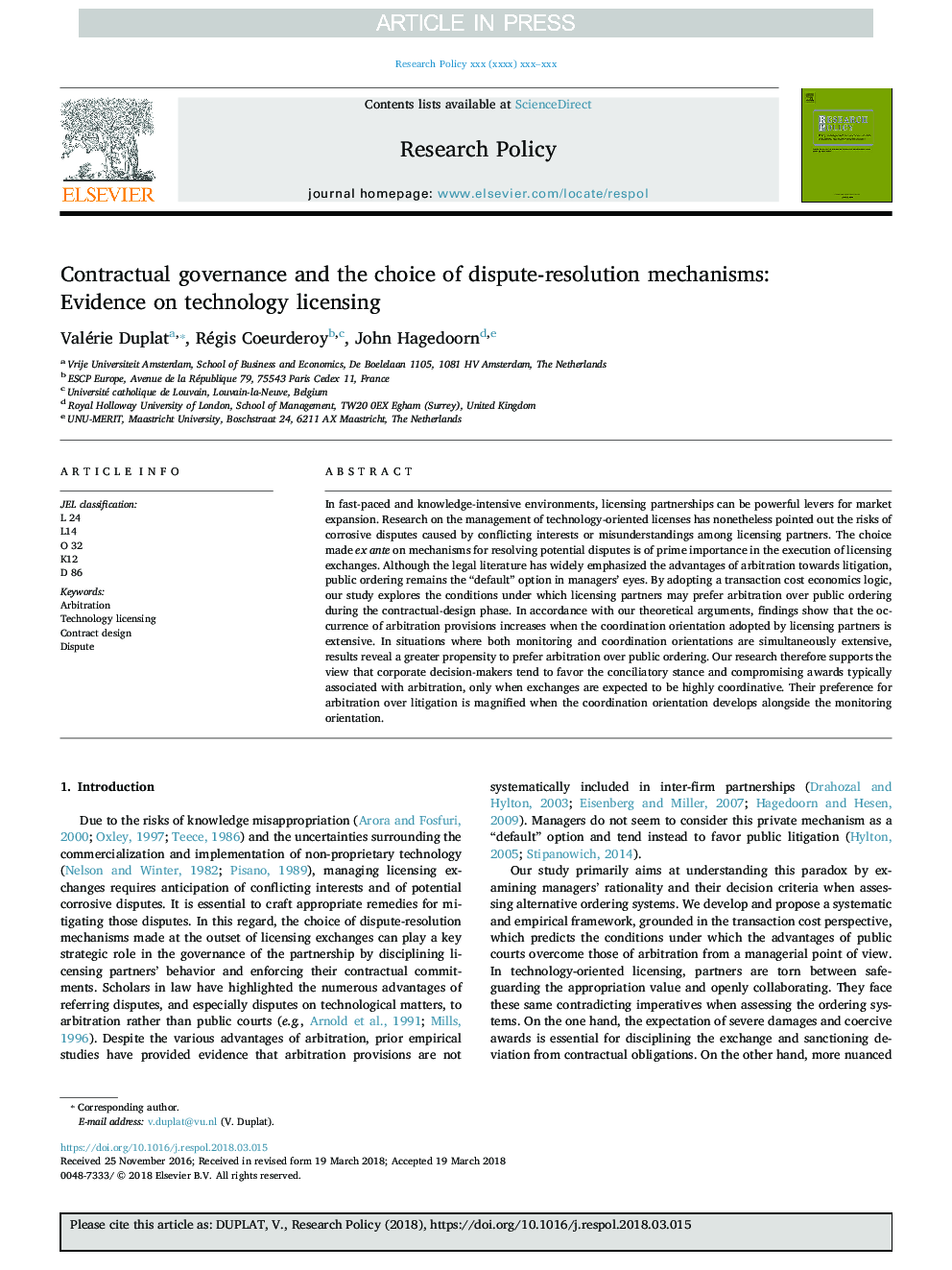| Article ID | Journal | Published Year | Pages | File Type |
|---|---|---|---|---|
| 7384379 | Research Policy | 2018 | 15 Pages |
Abstract
In fast-paced and knowledge-intensive environments, licensing partnerships can be powerful levers for market expansion. Research on the management of technology-oriented licenses has nonetheless pointed out the risks of corrosive disputes caused by conflicting interests or misunderstandings among licensing partners. The choice made ex ante on mechanisms for resolving potential disputes is of prime importance in the execution of licensing exchanges. Although the legal literature has widely emphasized the advantages of arbitration towards litigation, public ordering remains the “default” option in managers' eyes. By adopting a transaction cost economics logic, our study explores the conditions under which licensing partners may prefer arbitration over public ordering during the contractual-design phase. In accordance with our theoretical arguments, findings show that the occurrence of arbitration provisions increases when the coordination orientation adopted by licensing partners is extensive. In situations where both monitoring and coordination orientations are simultaneously extensive, results reveal a greater propensity to prefer arbitration over public ordering. Our research therefore supports the view that corporate decision-makers tend to favor the conciliatory stance and compromising awards typically associated with arbitration, only when exchanges are expected to be highly coordinative. Their preference for arbitration over litigation is magnified when the coordination orientation develops alongside the monitoring orientation.
Related Topics
Social Sciences and Humanities
Business, Management and Accounting
Business and International Management
Authors
Valérie Duplat, Régis Coeurderoy, John Hagedoorn,
